Natural Sciences
Mak-CoNAS Researchers Launch Project to Explore Forage Resources for Stingless Bees in Uganda
Published
4 years agoon
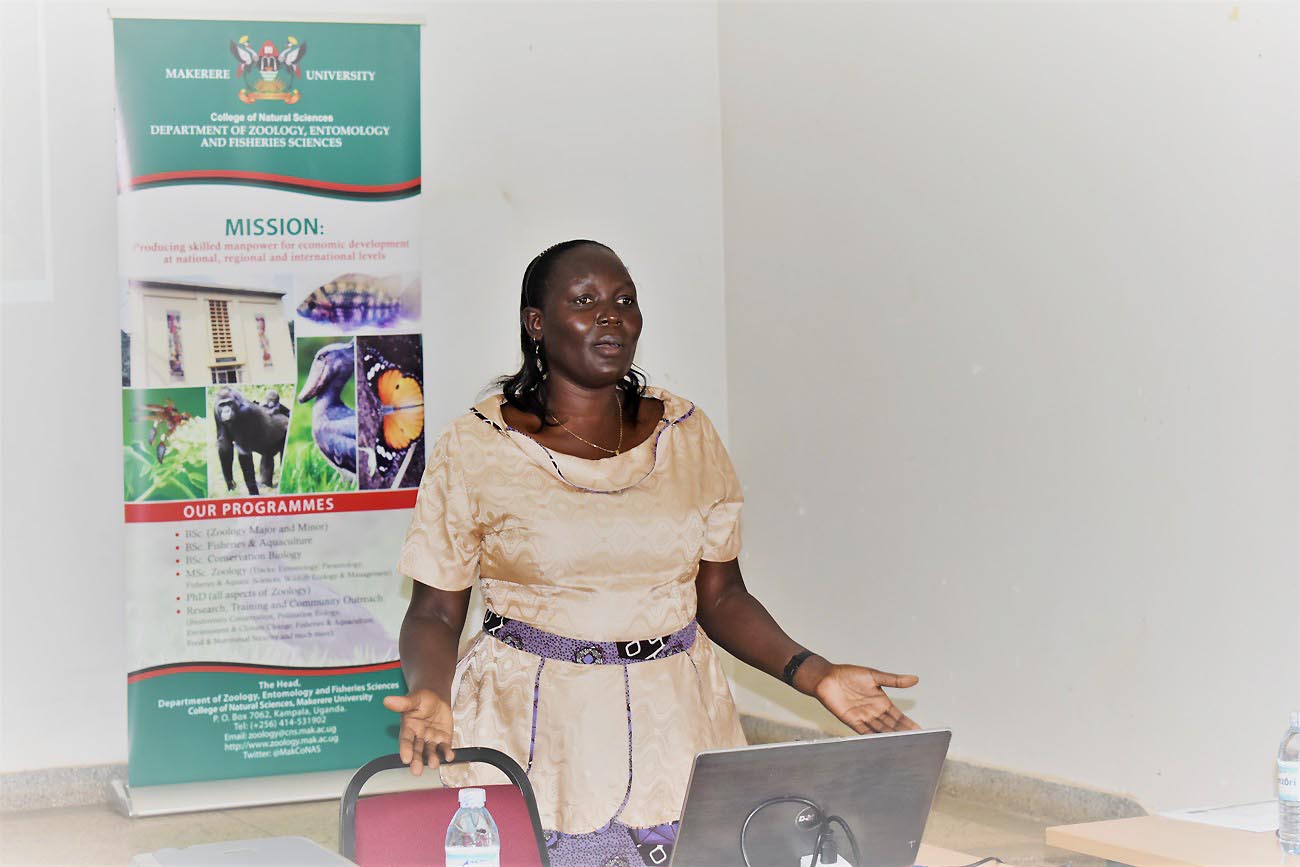
Preamble
The products from stingless bees may be little but are so valuable. Stingless bees have many benefits to various sectors of the economy, more especially the Health and Agricultural sectors. The project titled – “Exploring Forage Resources for Stingless Bees in Uganda: The Case of Meliponula bocandei”seeks to preserve them and to maximize their benefits to the economy.
It is led by Dr. Perpetra Akite, Lecturer in the Department of Zoology, Entomology and Fisheries Sciences and supported by the Government of Uganda through the Makerere University Research and Innovations Fund (Mak-RIF).
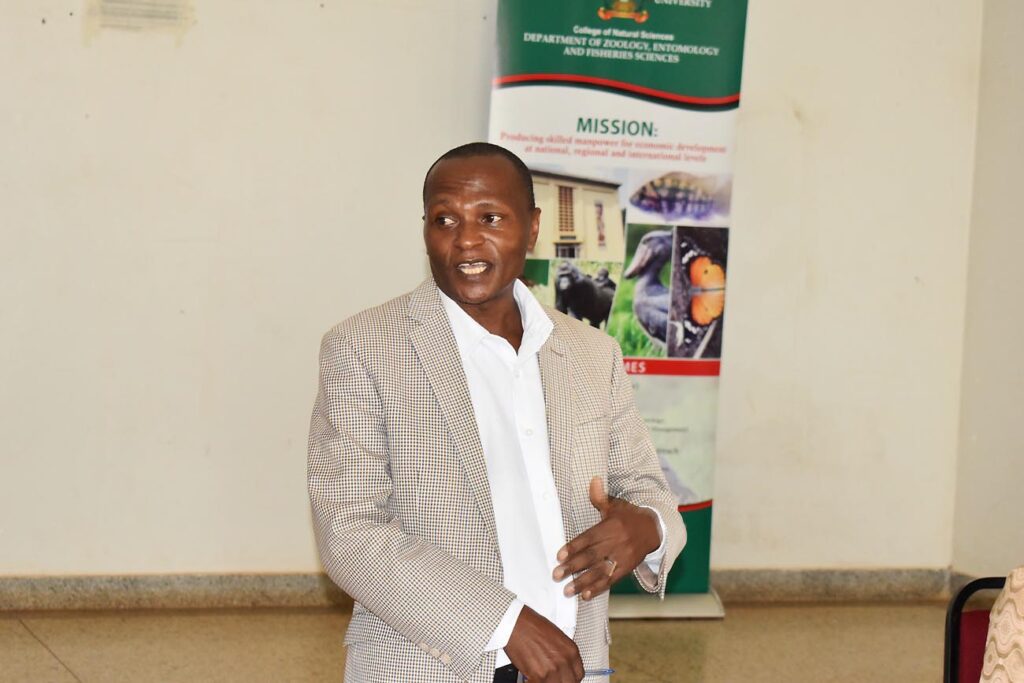
Launch of the project
Researchers from the Department of Zoology, Entomology and Fisheries Sciences, College of Natural Sciences (CoNAS), Makerere University on 18th November 2021 launched a project to explore forage resources for Stingless bees in Uganda, with special focus on the Meliponula bocandei species. The launch held at the National Livestock Resources Research Institute (NaLIRRI) in Nakyesasa, Wakiso District was presided over by the Commissioner, Entomology at the Ministry of Agricultural, Animal Industry and Fisheries (MAAIF), Mr Lawrence Tusimomuhangi. It was grace by among others, the current Head, Department of Zoology, Entomology and Fisheries Sciences, Dr. Eric Sande, and former heads, Prof. William Banage, Prof. Gilbert Isabirye Basuta and Prof. Anne Mary Akol.
Objectives of the project
Supported by the Government of Uganda through the Makerere University Research and Innovations Fund (Mak-RIF), the project seeks to profile forage resources for Meliponula bocandei in the Western highlands and Lake Victoria Crescent AEZs of Uganda. It also aims to characterize pollen in honey of Meliponula bocandei collected from the Western highlands and Lake Victoria Crescent AEZs of Uganda. Under the project, the researchers plan to develop a Meliponula bocandei beekeeping calendar for Uganda. Once developed, the beekeeping calendar will guide farmers on the approximate date and duration of the blossoming periods of the important honey and pollen plants in their area, and the kind of flowers available for the bees in the course of the year.
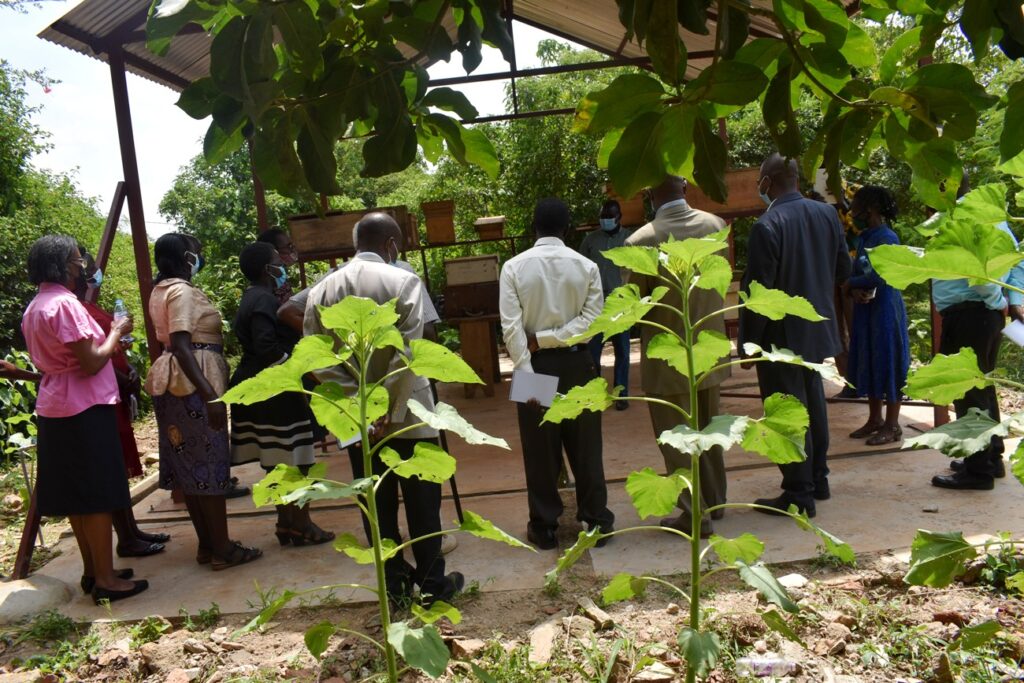
The study follows two previous research projects that sought to domesticate stingless bees in Uganda and to explore the nutritional and medicinal values of their products.
According to the research team, stingless bees present enormous benefits to the Health and Agricultural Sectors. Their products have high nutritional and medicinal values. The pollination services associated with the stingless beekeeping industry can boost crop production especially in the urban settings. The stingless beekeeping industry also has great potential to generate employment. However, the continued destruction of the environment through deforestation and soil pollution presents a major challenge to the survival of the bees since they feed on restricted plant species. It is on this basis that the researchers have set out to study and preserve forage resources for stingless bees.
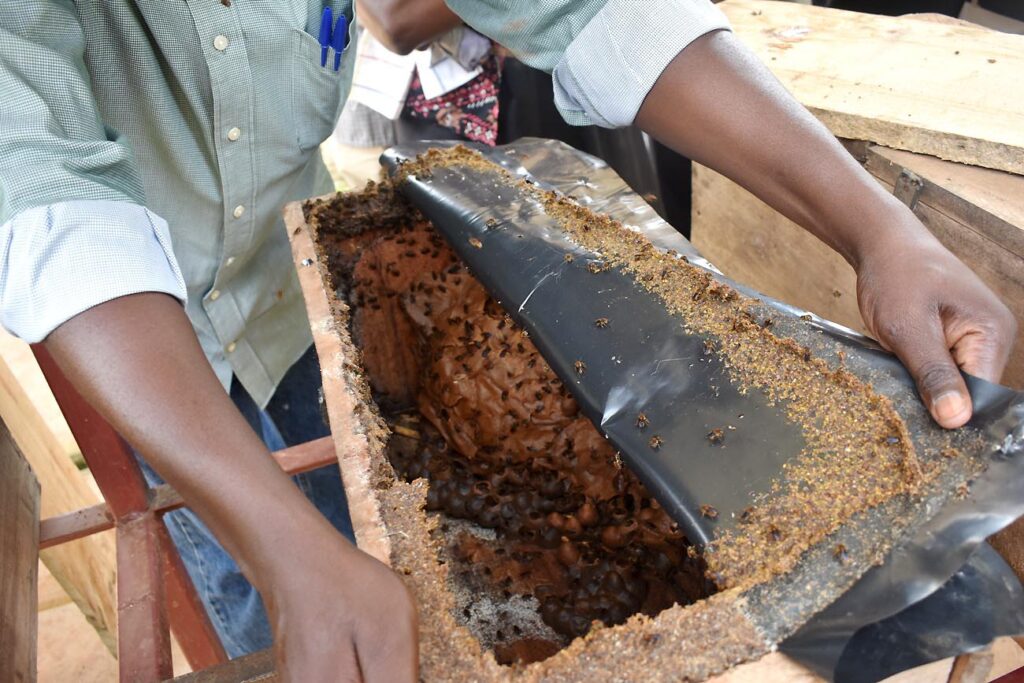
Expected outcomes
Presenting an outline of their study, the Principal Investigator, Dr Perpetra Akite said the project will largely contribute to the development of the stingless beekeeping industry in Uganda. “The project will impact positively at several frontiers, especially on the role played by stingless bees in crop pollination for food security. Scientists and other key actors will benefit from the knowledge generated from this action research on the identification of forage for stingless bees in Africa, and the economy will largely improve due to increased participation in stingless bee enterprises,” she noted. Other expected outcomes include; a baseline information and platform for developing stingless bee forage in Uganda, a stingless beekeeping calendar to promote meliponiculture and improvement in livelihoods.
Government expectations
Addressing participants, the Commissioner, Entomology at the Ministry of Agriculture, Animal Industry and Fisheries, Mr. Lawrence Tusimomuhangi applauded the researchers for the initiative. “The Government is deeply interested in insect related interventions. However, many questions in the area of entomology remain unanswered. There is need for substantive research into productive insects and Makerere should lead on this.We need to invent technologies for continuous production of insects like grasshoppers that have high commercial benefits. The Ministry of Agriculture, Animal Industry and Fisheries is relying on Makerere and other research institutions to guide on the development of appropriate technologies for insect management interventions, and the promotion of agro industrialization in line with the National Development Plan III,” he explained. NDP III seeks to promote sustainable industrialization for inclusive growth, employment and wealth creation.
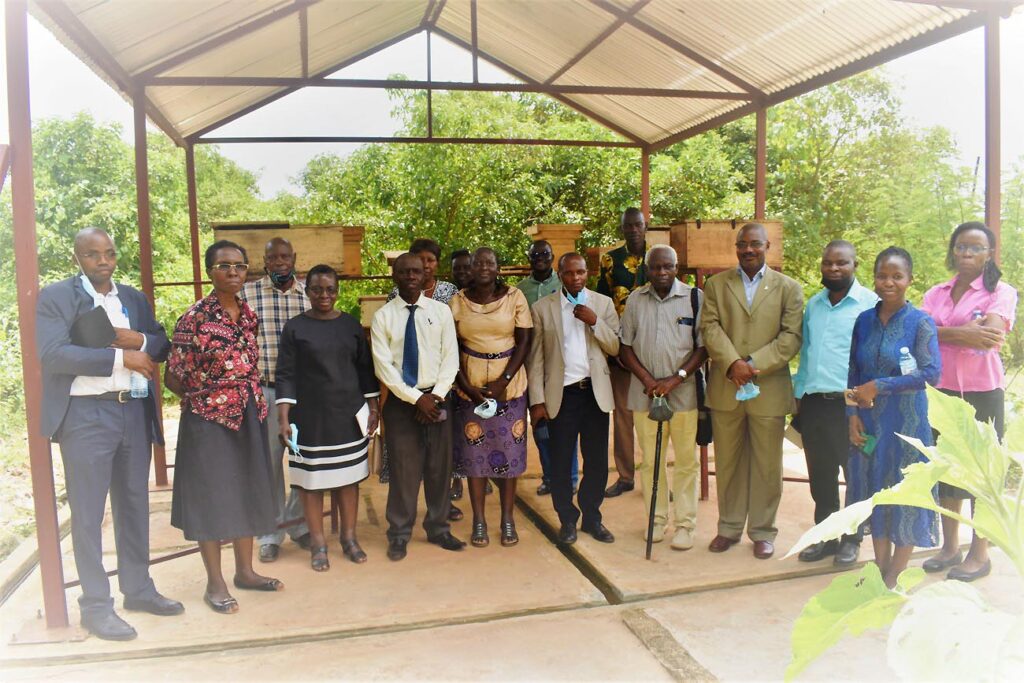
Proposals by participants
During the engagements, participants observed that there was need to study the behaviour of stingless bees at different locations (adaption to the environment) and variations in seasons before designing the beekeeping calendar. They also noted that it is important to collect data during both the dry and wet seasons for better results. Additionally, participants called for studies on the toxicological effects of agrochemicals on stingless bees.
In his remarks, the Head, Department of Zoology, Entomology and Fisheries Sciences at Makerere University, Dr Eric Sande commended the research team for writing a successful project. He appreciated the Government of Uganda for the enormous support towards research activities at Makerere. “Exploring Forage Resources for Stingless Bees in Uganda: A Case of Meliponula bocandei” is one of over 700 projects that have so far been supported by the Government of Uganda through Mak-RIF.
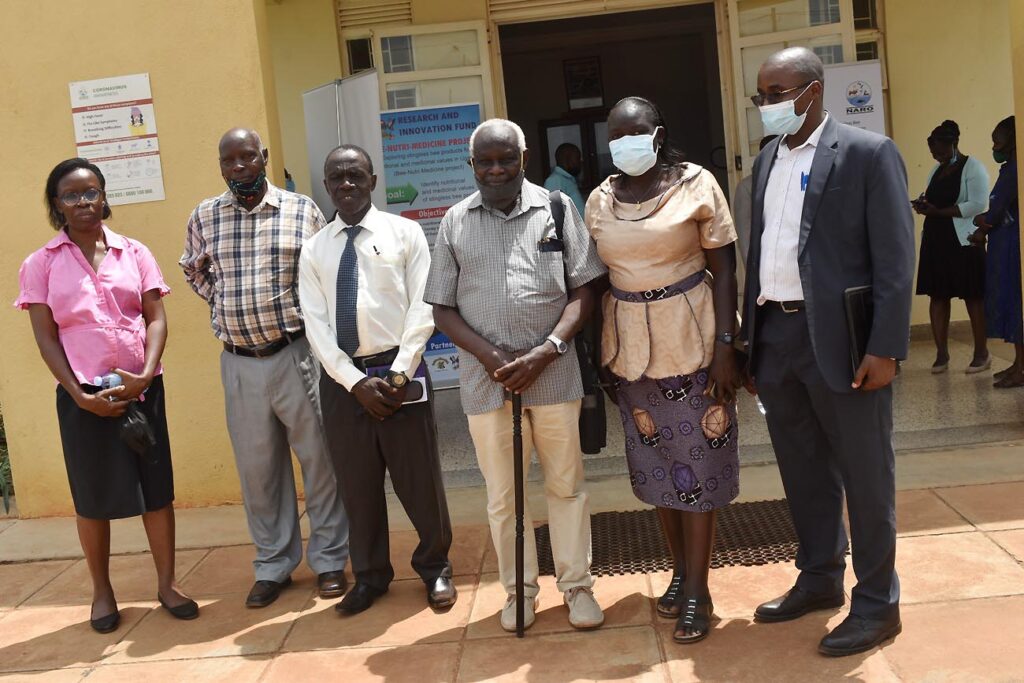
Additionally, Dr Sande acknowledged the presence of the former heads at the event and their continued support towards the development of the Department.
About NaLIRRI
Briefing participants on the NaLIRRI, the representative of the Director, Dr Patrice Kasangaki appreciated the long standing collaboration between the Institute and Makerere University Department of Zoology, Entomology and Fisheries Sciences. The Department has collaborated with the NaLIRRI on several research projects and continues to offer practical training as well as supervision of students. NaLIRRI supported the department in research on domesticating stingless bees and exploring the nutritional and medicinal values of their products. The Institute has pledged support for the current project aimed at exploring forage resources for stingless bees in Uganda.
As part of the project launch activities, participants toured the Meliponary at NaLIRRI to learn more about the preservation of stingless bees.
You may like
-
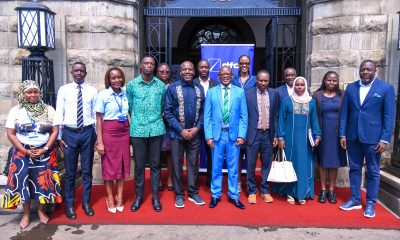

Makerere University, DFCU Bank Sign MoU to Advance Innovation, Student Leadership and Research
-
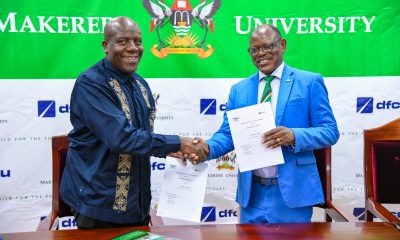

Press Release: Mak & DFCU Partner to Enhance Higher Education, Research & Student Support
-
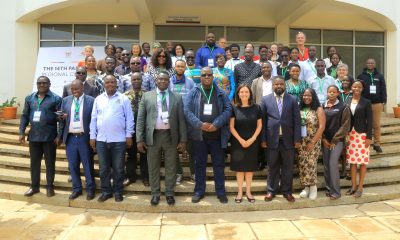

Harmonizing Africa’s Future through Musical Arts Education
-
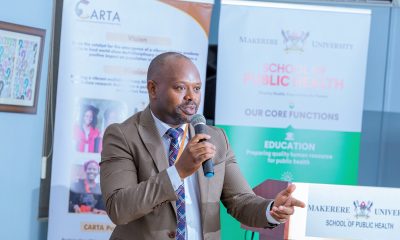

CARTA Focal Person Dr. Isunju Appointed to MakPress Editorial Board
-
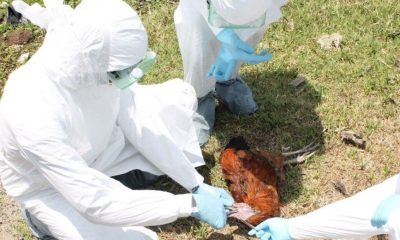

Advancing Regional Health Priorities Through the CARTA Research Hubs
-
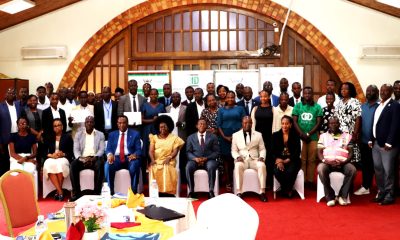

Swedish Ambassador Calls on Uganda to Lead Africa’s E-Mobility Revolution
Natural Sciences
CoNAS Participates in the 2025 National Science Week Exhibition
Published
3 weeks agoon
June 17, 2025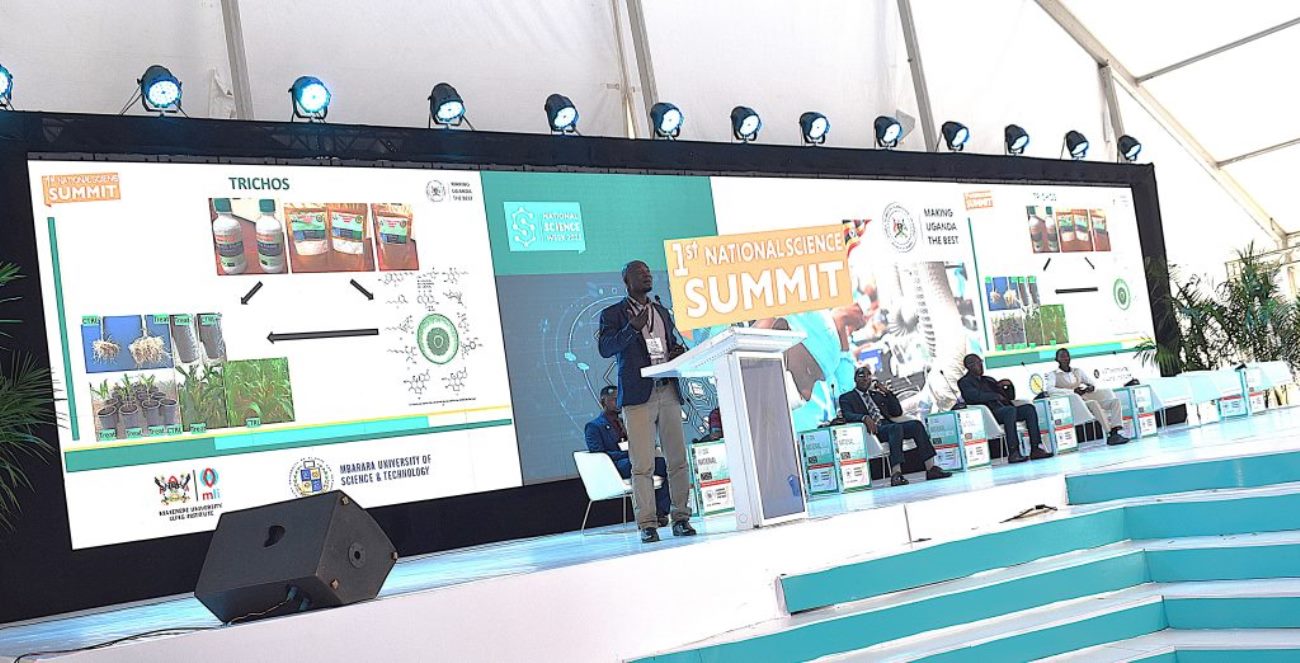
*****15 students from different departments at CoNAS are showcasing their projects.
Over 300 Ugandan innovators, among them students from the College of Natural Sciences (CoNAS) and other science-based colleges at Makerere University are participating in the 2025 National Science Week exhibition, currently underway at the Kololo Independence Grounds.
Launched in 2021, the National Science Week is an annual event organized by the Science, Technology, and Innovation (STI) Secretariat under the Office of the President. The exhibition serves as a strategic platform for showcasing Uganda’s advancements in science, technology, and innovation, both at the national level and on the global stage.
Held under the theme “Made in Uganda: Innovation to Market”, the 2025 edition (running from 15th-20th June) aims to highlight the country’s growing capacity to transform home-grown scientific ideas and research into viable, market-ready products and technologies.
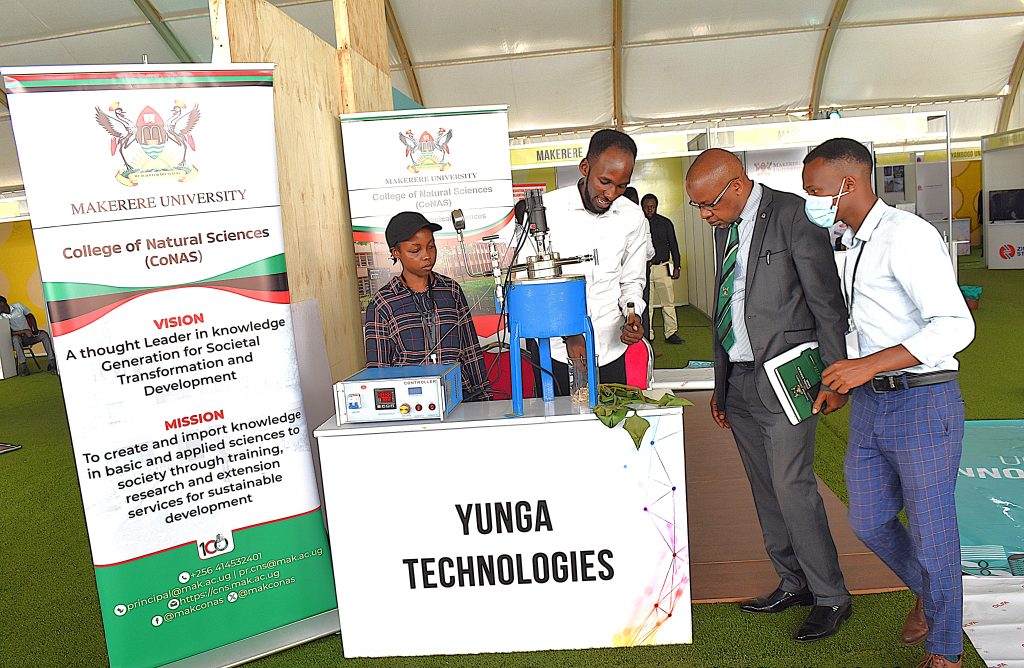
Key highlights from the official launch of the National Science Week
During the official launch held on 13th May 2025, the Minister of Science, Technology, and Innovation, Hon. Dr. Monica Musenero Masanza, outlined several milestones Uganda has achieved over the past year, including:
- The commencement of clinical trials for locally developed therapeutics, marking a significant step in Uganda’s biopharmaceutical sector.
- Notable growth in the electric vehicle (EV) industry, including the deployment of over 5,000 electric motorcycles and 27 electric buses across the country.
- Establishment of critical green infrastructure, including 140 battery swapping stations and more than 30 direct current (DC) fast chargers nationwide.
According to the Minister, these developments demonstrate Uganda’s advancing capabilities in green technology and sustainable mobility solutions.
The Minister also highlighted additional achievements by the STI Secretariat, including the revitalization of Sukulu Phosphates, the launch of both the Deep Tech and Climate Tech summits, and the operationalization of vaccine production lines for both human and animal health. Dr. Musenero expressed gratitude to the Government of Uganda for its continued support, emphasizing its strategic vision of leveraging science, technology, and innovation as a transformative vehicle to position Uganda as a continental leader in deep tech innovation.
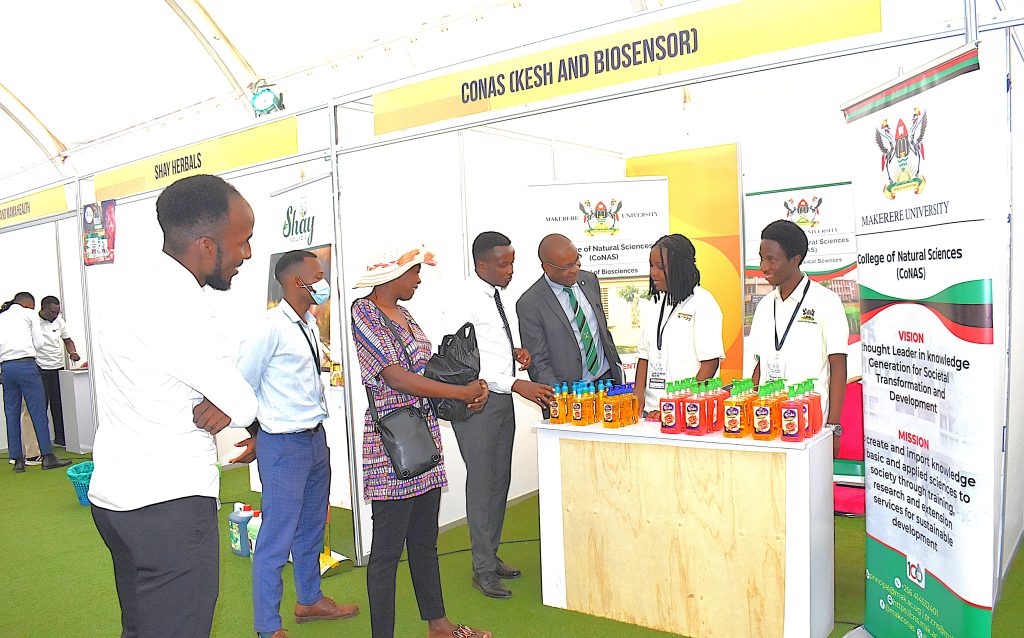
The 2025 National Science Week Activities
The National Science Week is designed to be an interactive experience for all attendees. According to Ms. Cathy Muhumuza from the STI, the exhibition will feature various activities including the official opening by the President of the Republic of Uganda, H.E. Yoweri Kaguta Tibuhaburwa Museveni, expected to take place on Thursday, 19th June 2025. Other activities will include policy dialogues, the Academia Day dedicated to young innovators, and the Investor Day providing a platform for innovators to connect with potential investors.
Additionally, the event will host a “Made in Uganda Supermarket,” allowing visitors to purchase products directly from exhibitors.
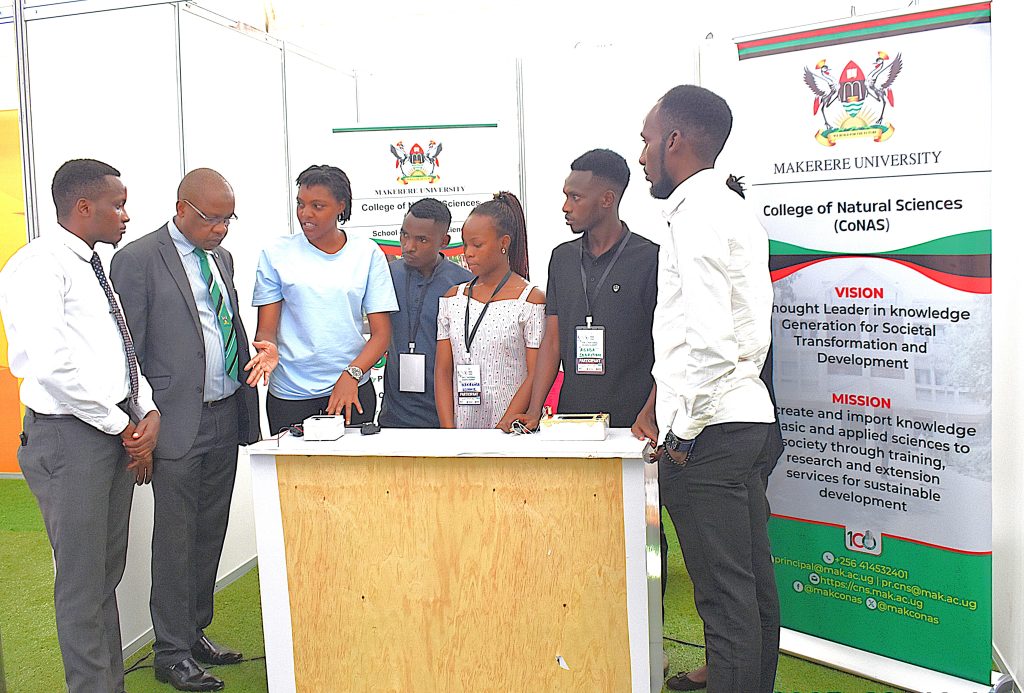
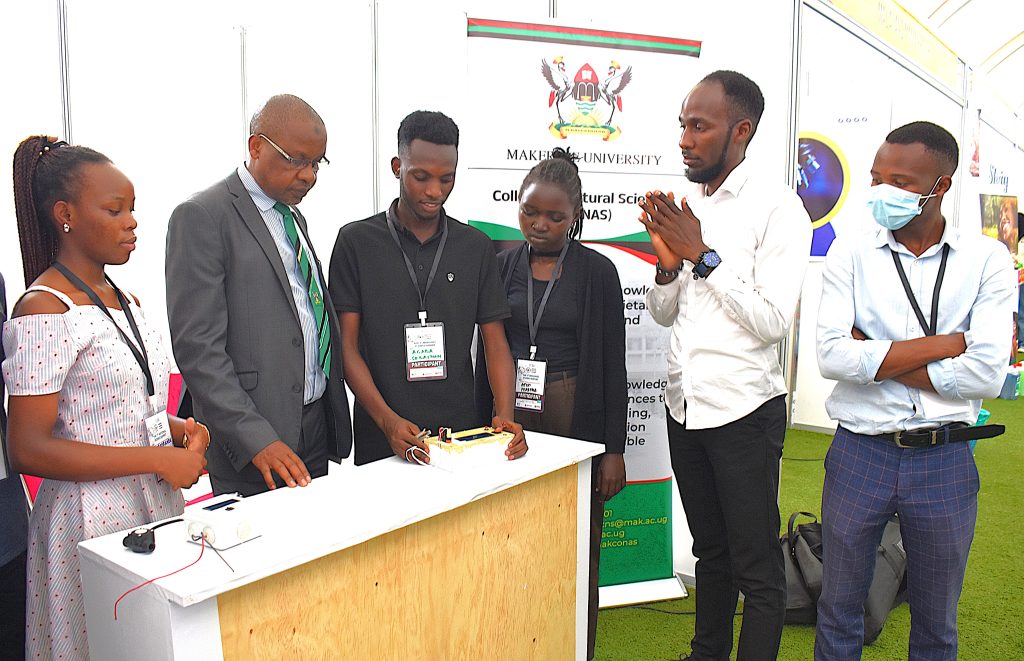
CoNAS Students’ projects
Among the many innovators featured at the exhibition are several talented student teams from CoNAS, presenting a diverse array of projects across scientific disciplines, including biotechnology and green energy. Guided by their lecturers and coordinated by Prof. Juma Kasozi, Deputy Principal of CoNAS, the students are showcasing the following projects:
- Anti-fungal and Anti-bacterial Gel Research Project
Team Leader: Mwebaze Bruce
Team Members: Atim Martha, Sebastian Jordan
This project explores the development of a topical gel with both anti-fungal and anti-bacterial properties, aimed at improving public health outcomes in communities with limited access to conventional treatments. - Minoxidil Production for Hair Regrowth
Team Leader: Keinembabazi Melissa
Team Members: Hashima Nanyiri, Nkamusiima Andrew
Focused on producing affordable, locally made Minoxidil, this project aims to provide a cost-effective solution for treating hair loss. - Infrared Biosensor for Aflatoxin Detection
Team Leader: Rubeihayo Randolp
Team Members: Namuleme Martha, Wabitereza Teddy
This innovation utilizes spectrophotometry to develop an infrared biosensor capable of detecting harmful aflatoxins in food, contributing to food safety and public health. - Biofuel Production from Water Hyacinth
Team Leader: Bill Garvin
Team Members: Kalanguka Patience Pearl, Nuwagaba Victor
The project converts invasive water hyacinth into sustainable biofuels using hydrothermal liquefaction, offering an environmentally friendly alternative energy source. - Automobile Fuel Gauge Detector
Team Leader: Ayebare Sam
Team Members: Achieng Rosemary, Nakirinda Winnie
This project involves the development of a reliable fuel gauge detector to improve vehicle fuel management and efficiency.
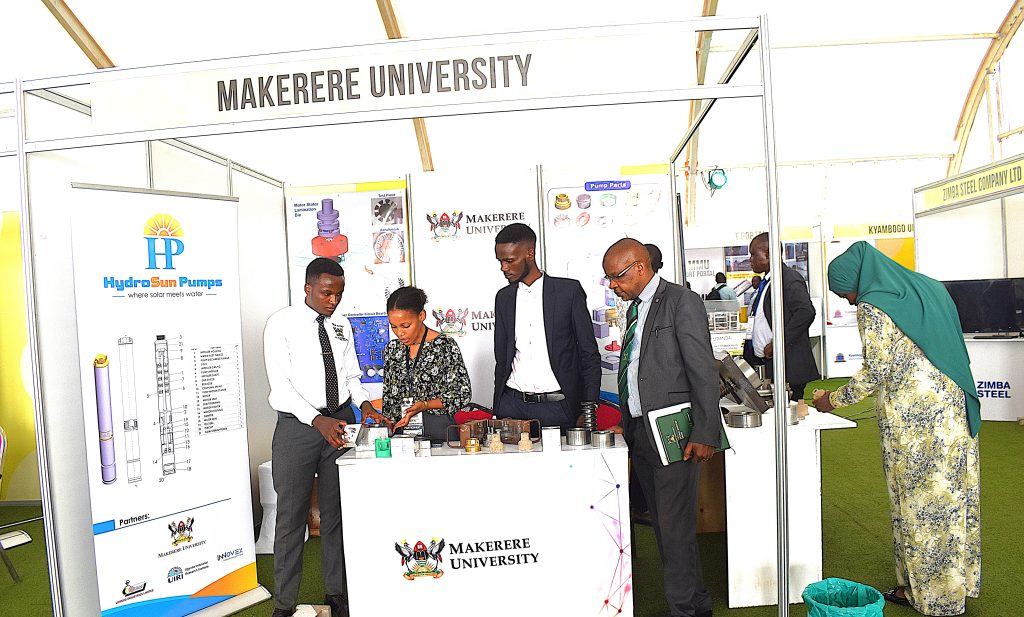

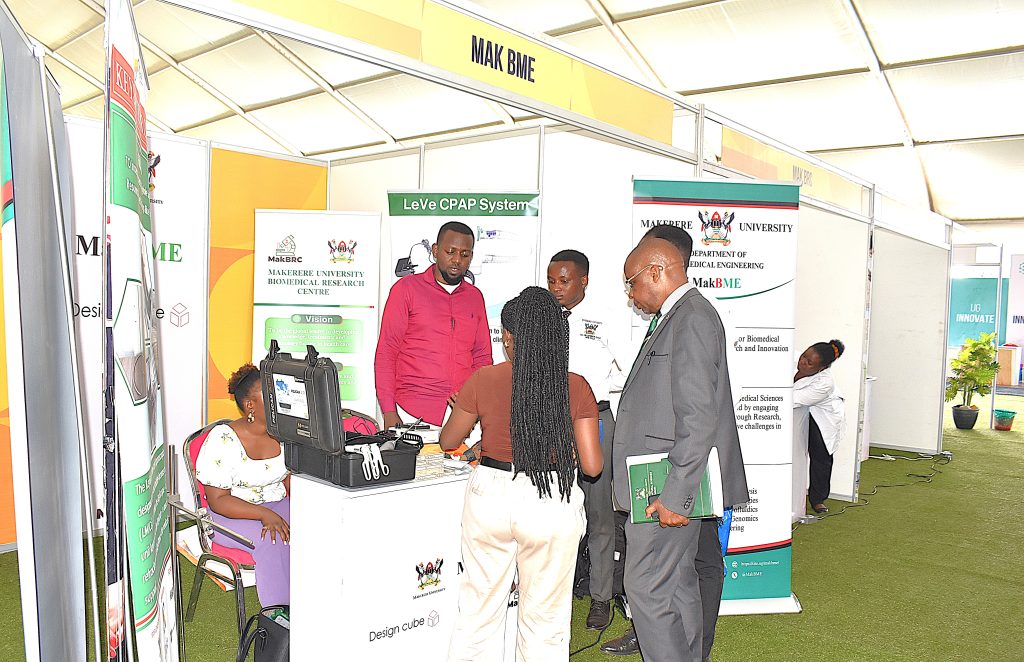
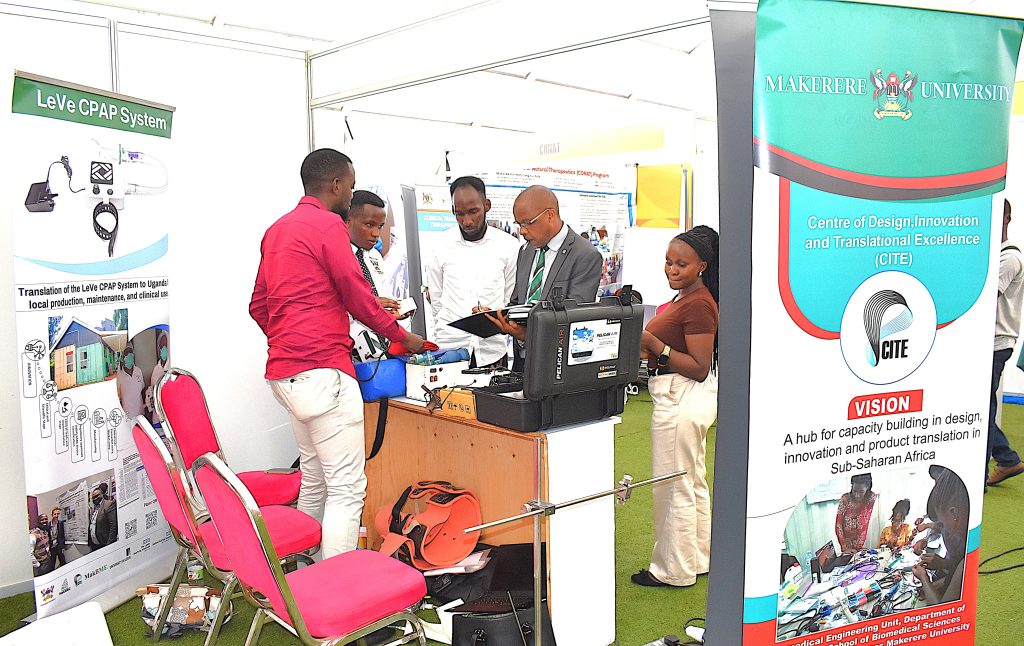
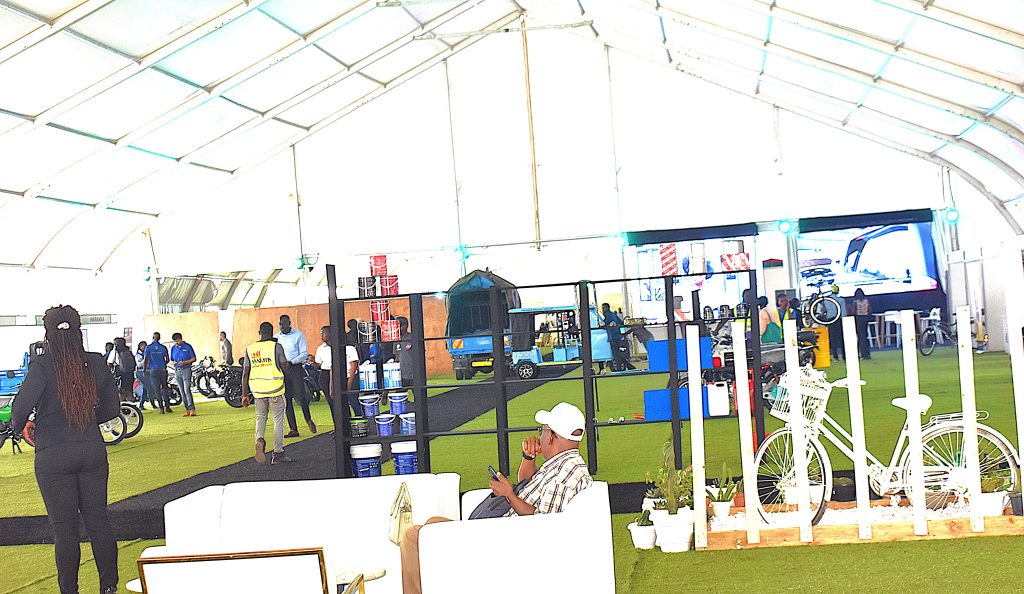
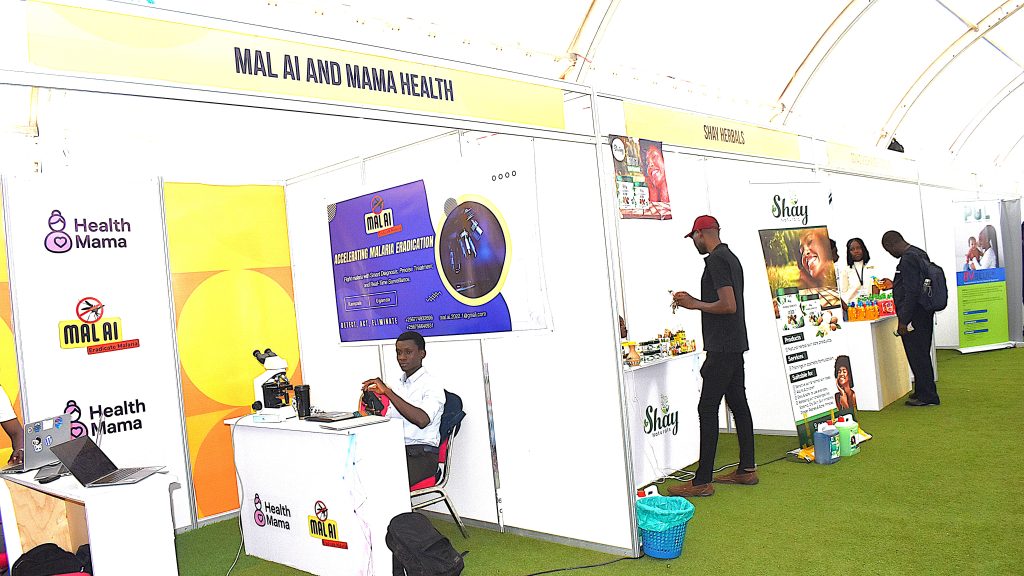
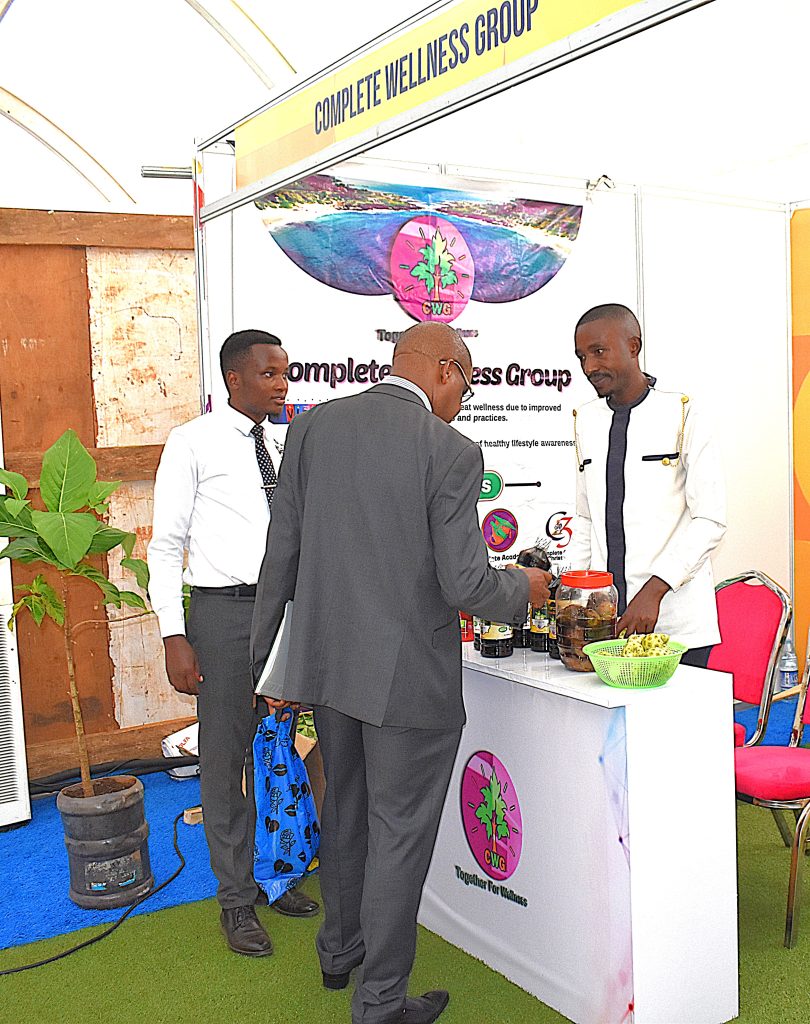
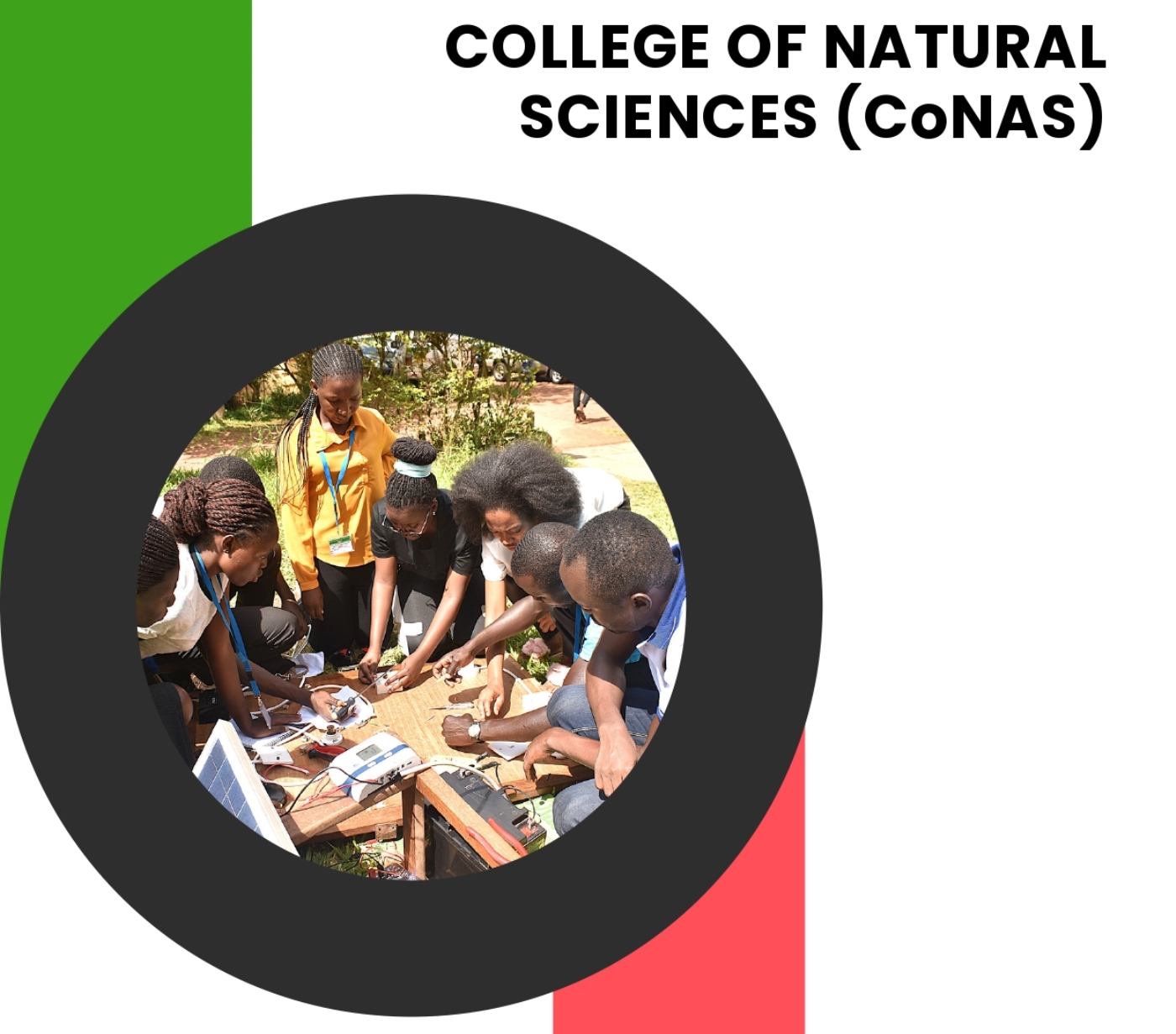
The College of Natural Sciences (CoNAS) is one of the 9 constituent colleges of Makerere University, dedicated to advancing scientific knowledge and education in Uganda.
Comprising two schools and seven departments, CoNAS offers cutting-edge research and academic programs across diverse fields, including chemistry, physics, mathematics, and biological sciences.
The College is committed to nurturing innovative thinkers and leaders who can tackle the complex challenges of today’s world through scientific exploration and discovery. With a long-standing tradition of academic excellence, CoNAS plays a central role in shaping Uganda’s scientific and technological future. It fosters a culture of critical thinking, problem-solving, and sustainable development. The College’s distinguished faculty, state-of-the-art laboratories, and collaborative research initiatives continue to inspire and develop world-class professionals who make significant contributions to both national and global progress.
This edition of the report highlights the activities and achievements of 2024, aligned with the University’s strategic focus on Innovative Teaching and Learning, Research, Innovations and Technology Transfer, and Strategic Engagement and Partnerships.
Natural Sciences
Preparing Graduates for Life after University: CoNAS Launches Terminal Seminar for Final Year Students
Published
2 months agoon
April 24, 2025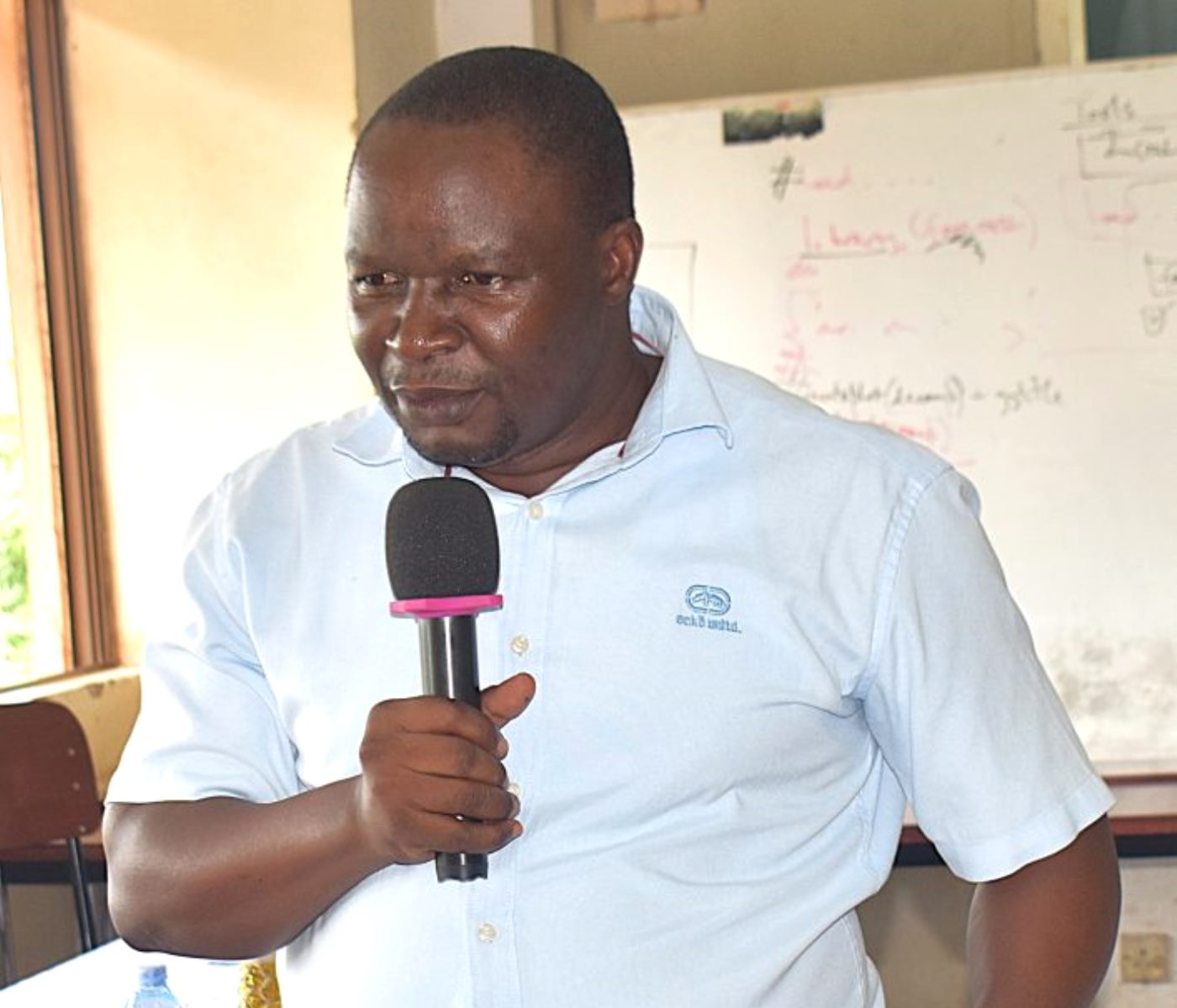
Relevance of the seminar
Transitioning from university life to the professional world can be a daunting experience for many graduates. This challenge is particularly pronounced in Uganda, the broader East African region, and across Africa, where many university leavers find themselves ill-equipped to face the realities of life after school. Issues such as limited career guidance, lack of personal development resources, and insufficient awareness of societal expectations leave many graduates unprepared for what lies ahead.
According to data from the Uganda Bureau of Statistics (UBOS), the youth unemployment rate in the country stands at approximately 13.3%. Each year, over 400,000 graduates join the job market, all vying for a mere 9,000 available formal employment opportunities. This staggering imbalance creates a climate of intense competition, often resulting in widespread disillusionment, anxiety, and in severe cases, depression – largely due to the absence of structured transition programmes to support young people during this critical phase of life.
While some graduates manage to find employment, launch entrepreneurial ventures, or pursue further academic study, many others struggle with prolonged unemployment or underemployment. This vulnerable group is at risk of turning to detrimental coping mechanisms such as substance abuse, criminal activity, or social withdrawal. One of the root causes of this unpreparedness is the lack of mentorship and real-world guidance in key areas such as workplace conduct, professional ethics, entrepreneurship, leadership, and personal financial management.
In response to this pressing need, the College of Natural Sciences (CoNAS) at Makerere University, through its School of Biosciences, has launched an innovative initiative – the Terminal Seminar/Symposium for Final-Year Students. Spearheaded by Heads of Departments within the School, the seminar is designed to bridge the gap between academic knowledge and the realities of post-university life by equipping students with essential life and career skills.
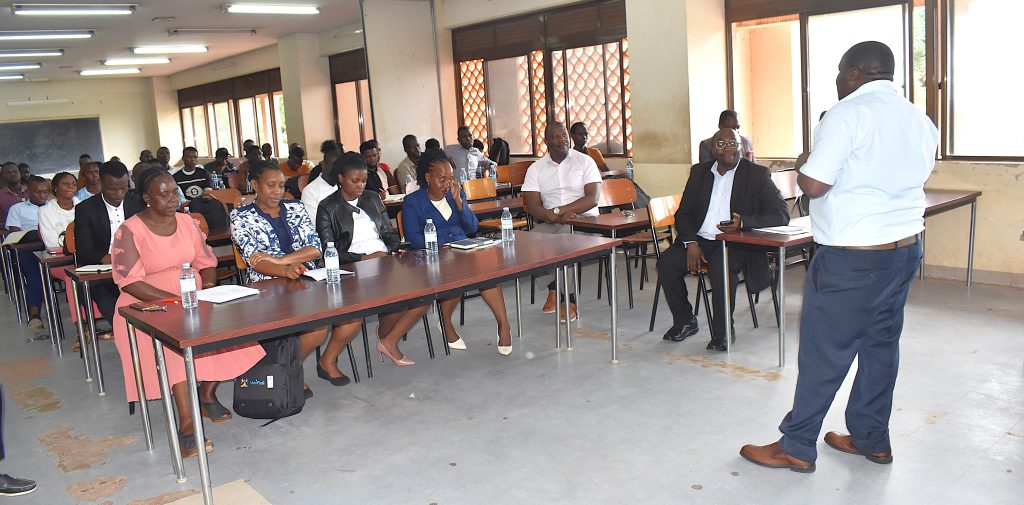
Objectives of the Terminal Seminar
The seminar aims to:
- Impart practical knowledge on workplace ethics, professional behaviour, and employability.
- Cultivate entrepreneurial thinking and leadership skills, enabling students to create their own opportunities.
- Provide strategies for coping with unemployment, social pressure, and the transition period.
- Raise awareness about mental health and equip students with tools to manage transition-related stress.
- Offer insights into navigating employment in public and private sectors, non-governmental organizations (NGOs), and the global job market.
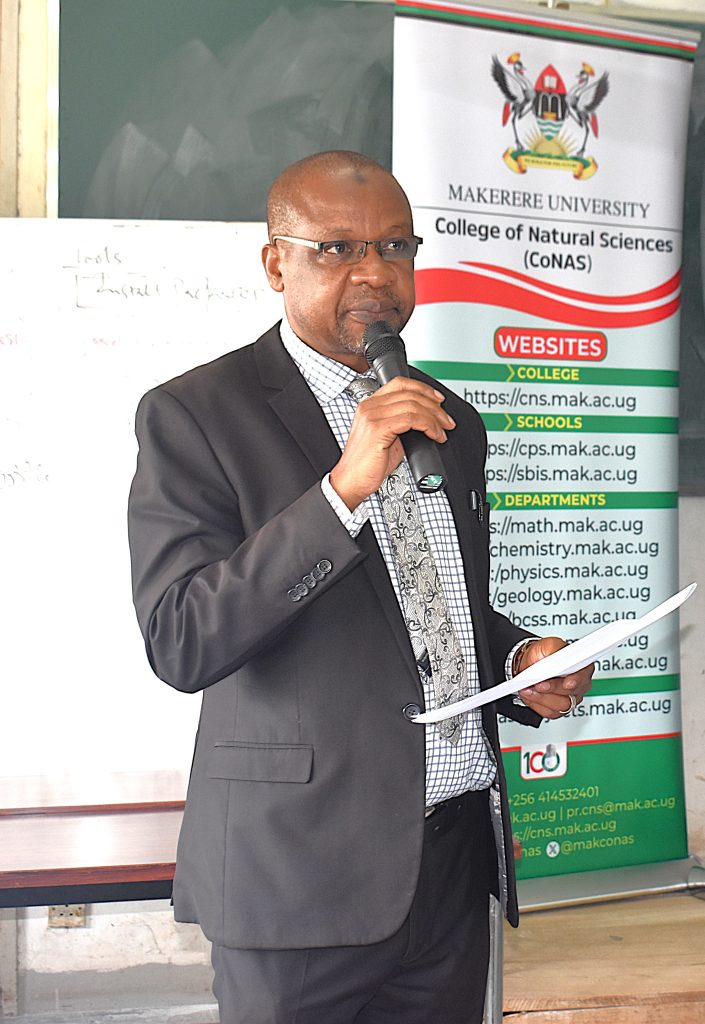
Expected Outcomes
By the end of the programme, students are expected to:
- Gain a broader awareness of career and self-employment opportunities.
- Develop realistic expectations about the challenges and opportunities post-university.
- Experience reduced levels of frustration and vulnerability to harmful behaviours.
- Build connections and networks with industry professionals and mentors.
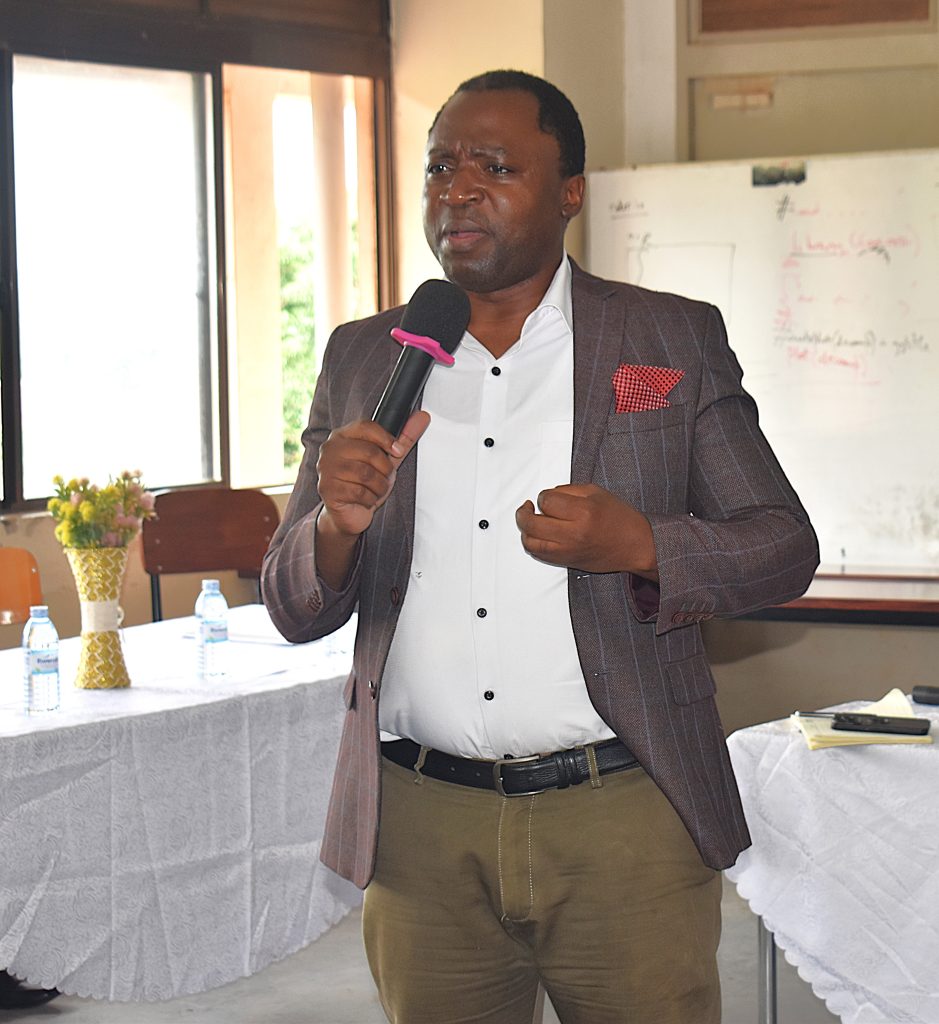
2025 Terminal Seminar Event Highlights
On 23rd April 2025, CoNAS held its flagship Terminal Seminar for Final Year students set to complete their studies in June 2025. The seminar was coordinated by Dr. Godfrey Kawooya Kubiriza, Head, Department of Zoology, Entomology, and Fisheries Sciences, with support from Dr. Barbra Nerima and Dr. Joel Isanga, both faculty members from the Department of Biochemistry and Systems Biology.
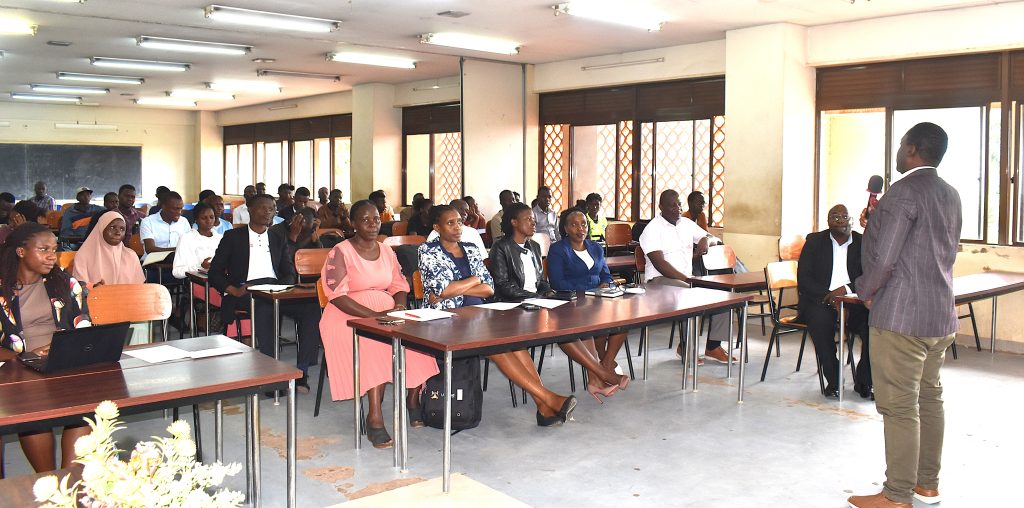
The event featured a series of empowering sessions, designed to help students navigate the transition from academic life to the professional world. Key topics included career planning, workplace ethics, entrepreneurship, and mental well-being.
A line-up of seasoned professionals and motivational speakers – including Mr. John Walugembe, Executive Director of the Federation of Small and Medium Sized Enterprises Uganda, and Dr. Catherine Mbidde, Ag Director, Makerere University Innovations Pod (UniPod), also Lecturer at the School of Business at CoBAMS, shared their personal journeys, professional insights, and practical advice for thriving beyond the university walls. Other Speakers included Dr. Alex Behakanira from the Department of Mathematics, Makerere University; Mr. Henry Nsubuga, Manager, Counselling and Guidance Centre, Makerere University; Mr. Maurice Ssebisubi, Senior Programme Officer (Fisheries and Environment) at the Embassy of Iceland; and Ms. Sylvia Kajubi, Deputy Principal at the Insurance Training College of Uganda.
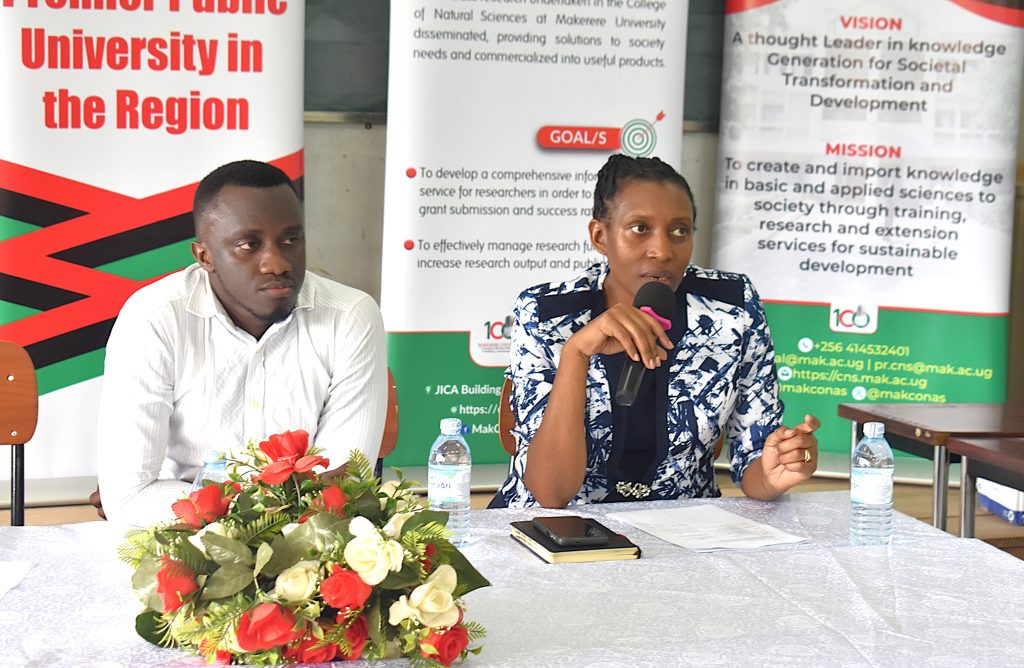
Sharing his personal journey, Mr. John Walugembe offered valuable insights to students, emphasizing the critical importance of time management in shaping a successful career. He encouraged them to cultivate patience, resilience, and integrity as they transition from academic life into the professional world.
Mr. Walugembe also urged the students to maintain an open mind when approaching the job market. “You should not confine yourselves to roles within your academic fields. Remain open to exploring a wide range of opportunities that may arise. You need to approach the job market with flexibility,” he advised.
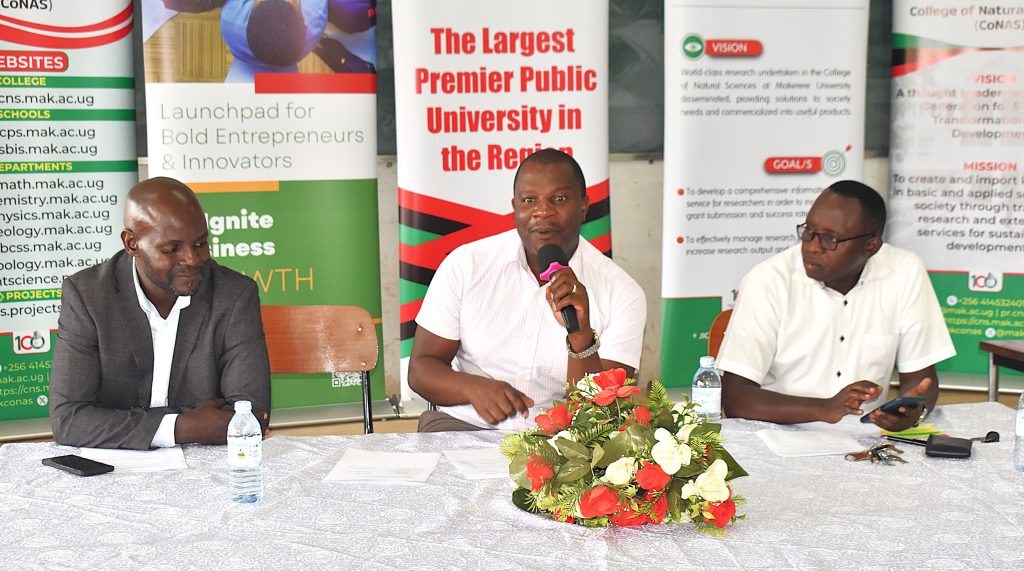
In addition, he highlighted the dual significance of academic excellence and strong professional networks, noting that good grades can open doors, but relationships and connections often determine how far one can go in their career journey. “The best way to build networks is to improve your value,” he advised.
Addressing the students on how to leverage the digital landscape to advance their careers, Dr. Catherine Mbidde emphasized the transformative potential of digital tools in shaping future opportunities. She, however, expressed concern over the growing trend of digital tool misuse – platforms that could otherwise be harnessed to explore career paths and unlock job prospects.
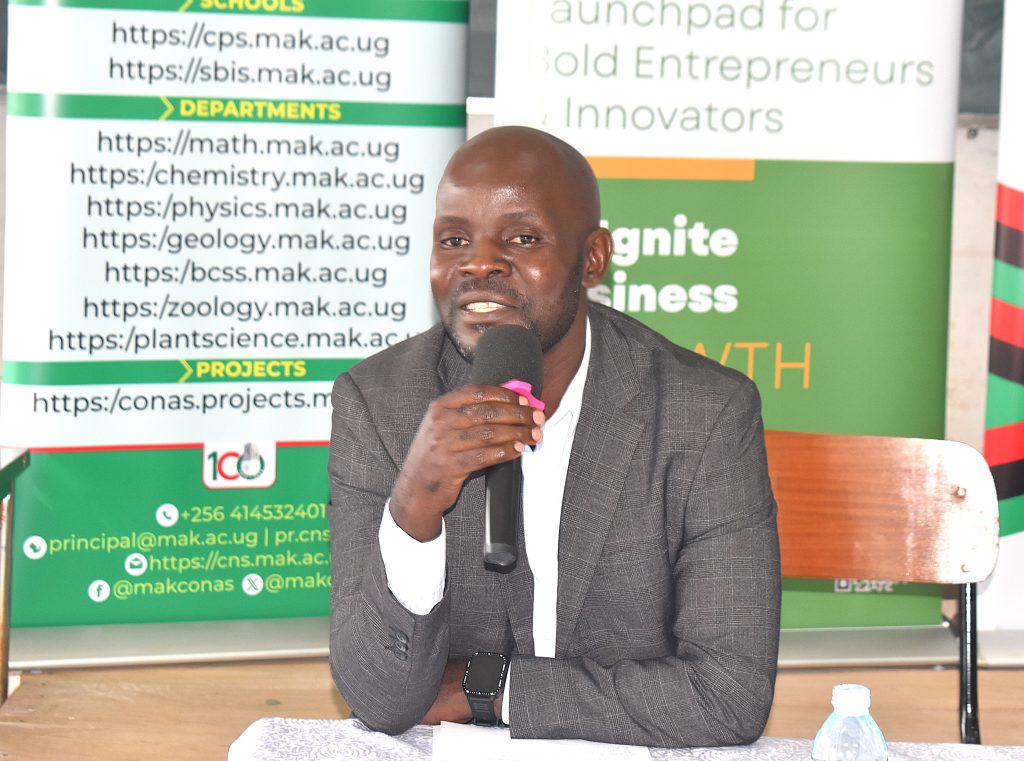
Dr. Mbidde urged the students to invest in nurturing their entrepreneurial skills, encouraging them to proactively develop plans, engage in regular self-assessment, and seek out mentors who can offer guidance and support along their professional journeys. She underscored the importance of spiritual grounding, advising students to cultivate a strong relationship with God as a source of direction and resilience in navigating the complexities of their career paths.
Mr. Basiima Collins from UniPod emphasized the importance of a mind-set shift as graduates navigate their career paths. He urged students to actively participate in networking events and foster an entrepreneurial mind-set, stressing that these actions are essential for personal and professional growth. “By embracing opportunities for networking, you can build valuable connections and open doors to new possibilities. Additionally, cultivating an entrepreneurial mind-set allows you to approach challenges with creativity, resilience, and a proactive attitude, which are crucial qualities for success in today’s dynamic job market.”
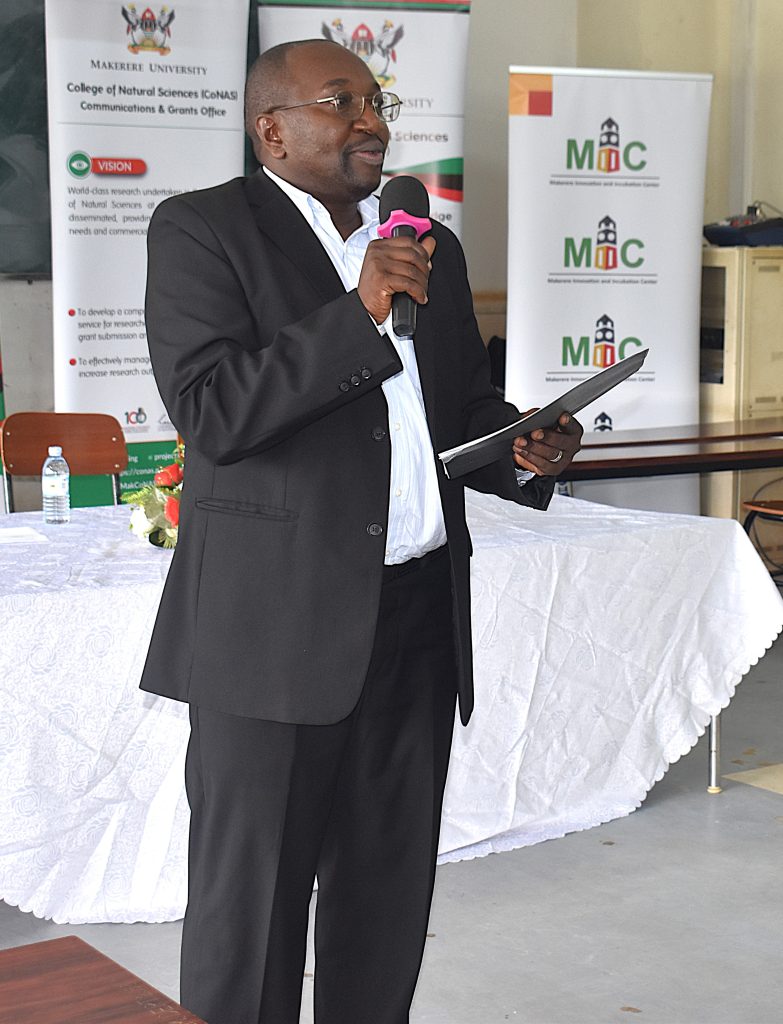
Addressing students on the significance of mental health in the journey of career development, Dr. Alex Behakanira emphasized the need to remain open-minded and adaptable. He noted that although job opportunities may appear scarce, the broader landscape of opportunities remains vast and ever-evolving. Dr. Behakanira encouraged students to strive for relevance not only in their professional environments but also within their homes and communities, underlining the importance of being well-rounded individuals. Echoing this sentiment, Mr. Henry Nsubuga stressed the importance of safeguarding one’s mental well-being throughout their career path. He advised students to cultivate a resilient mind-set and to be intentional about steering clear of situations that may lead to emotional distress or depression.
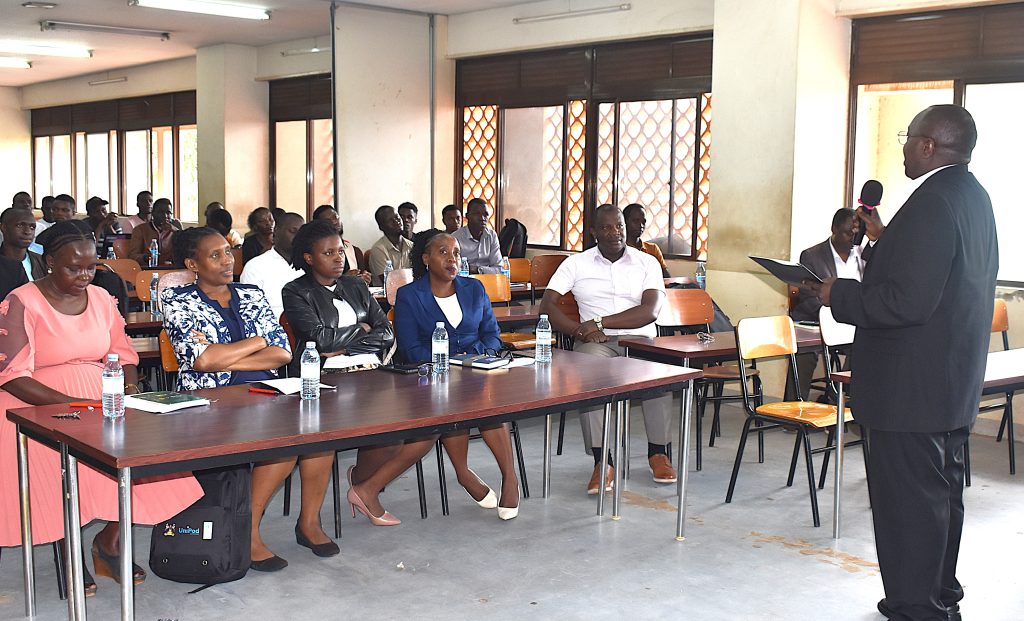
In his remarks, Prof. Juma Kasozi, the Deputy Principal of the College of Natural Sciences (CoNAS) and Head of Academics, expressed his appreciation for the initiative. He commended the effort as a timely and strategic intervention aimed at equipping students with the practical knowledge and emotional resilience necessary to navigate the dynamic and often challenging world of work. Prof. Kasozi emphasized that such initiatives play a crucial role in bridging the gap between academic theory and real-world application. He extended sincere gratitude to the seminar coordinators, praising their foresight and dedication in conceptualizing and organizing the programme.
The Terminal Seminar will be held on an annual basis.
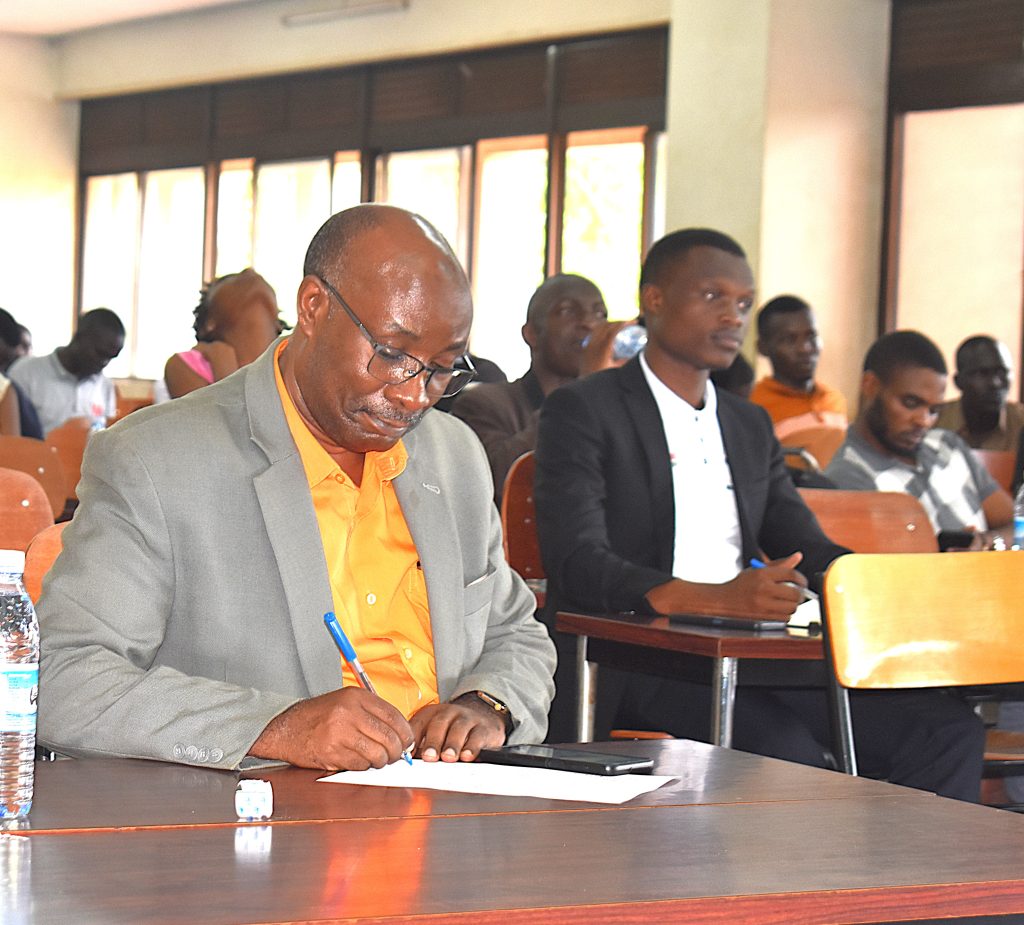
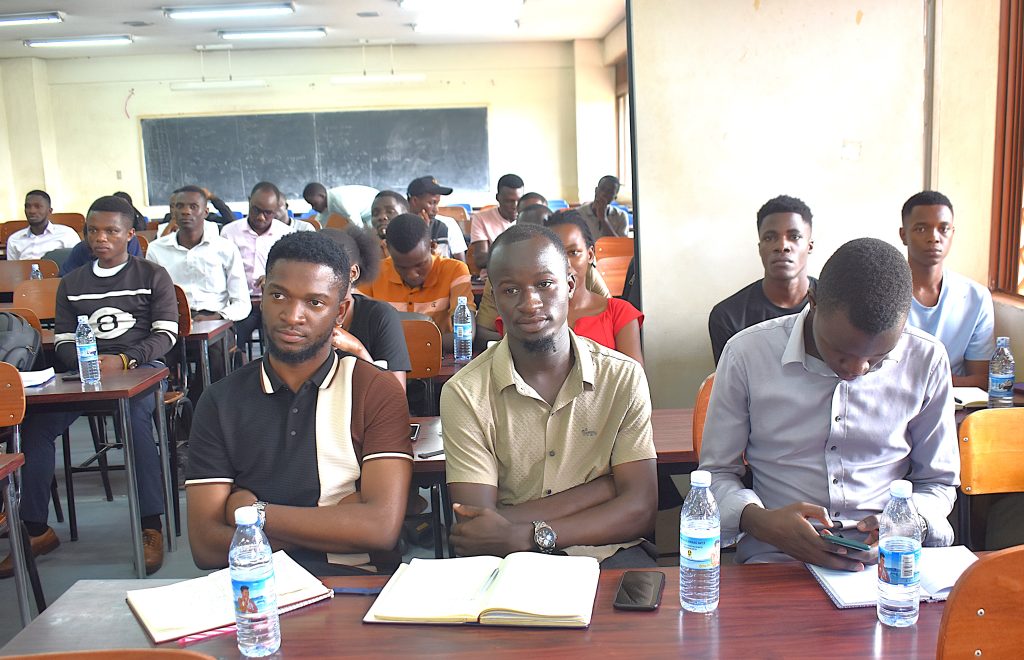
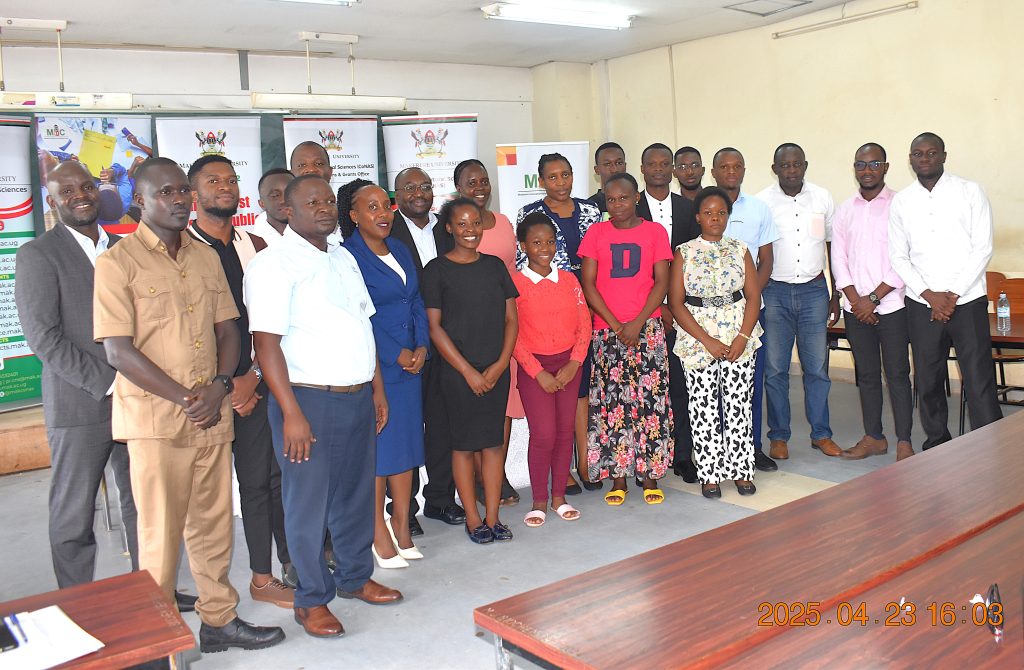
Trending
-

 Education4 days ago
Education4 days agoAdmission List to Bachelor of Education External (BED) 2025/26 -Private Sponsorship
-

 General7 days ago
General7 days agoUndergraduate Admission List Self Sponsorship Scheme 2025/2026
-

 General2 weeks ago
General2 weeks agoMature Age Scheme Exam Results for 2025/2026
-

 General2 weeks ago
General2 weeks agoFreshers’ Joining Instructions 2025/2026
-
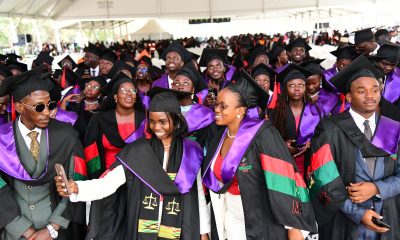
 General5 days ago
General5 days agoAdmission Lists for – Bachelor of Laws 2025-26
